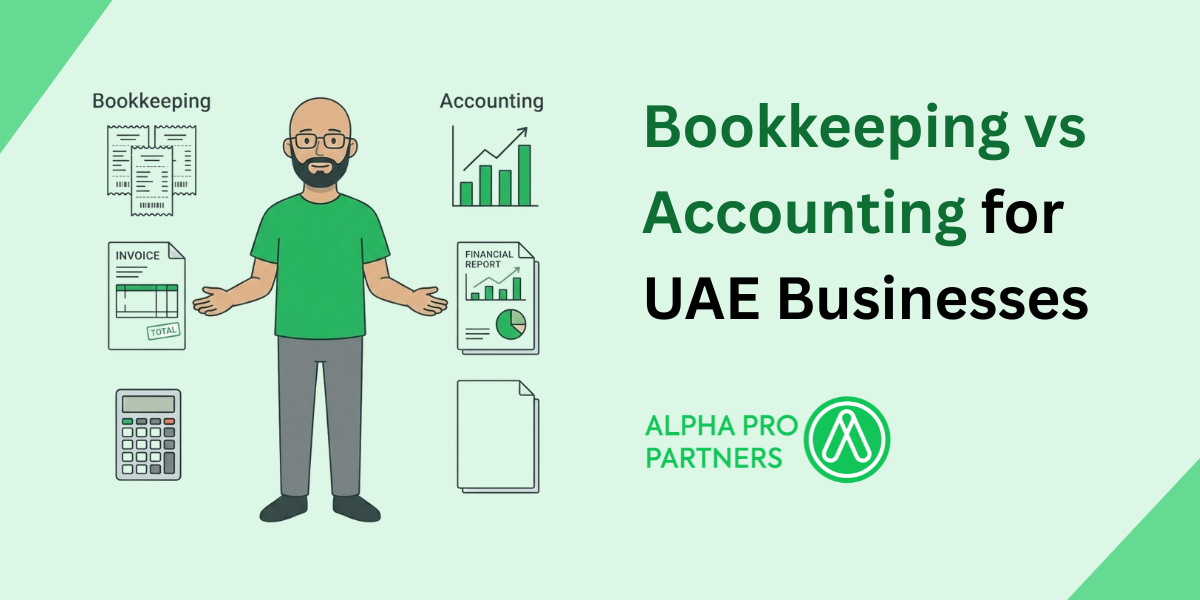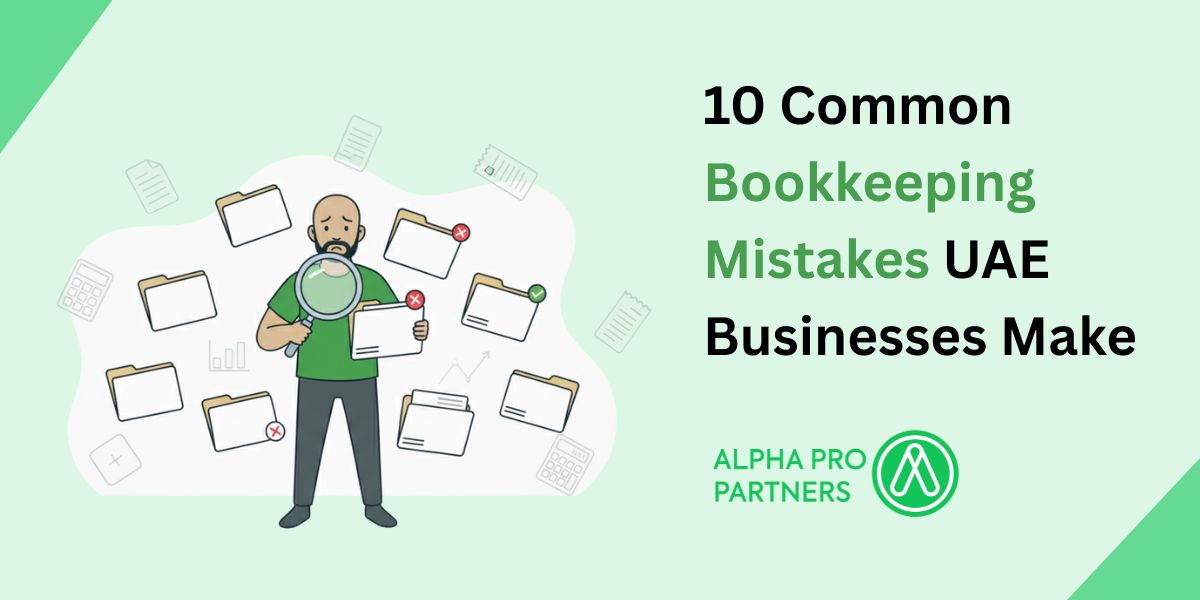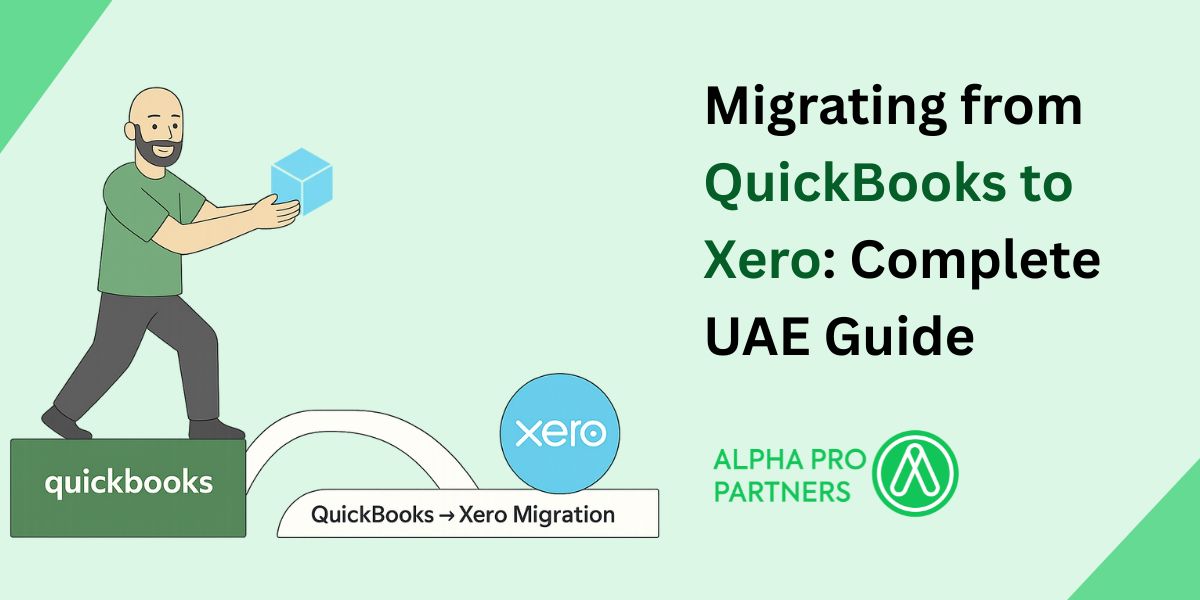Tracking Business Expenses A Practical Guide for UAE Companies

Owning a business is exciting, but there is one task every entrepreneur must face; tracking income and expenses. While it may not feel glamorous, it is one of the cornerstones of financial health and smooth tax compliance. If you stay organised, tax season becomes routine instead of stressful. If you ignore it, the results can be overwhelming, with missed deductions, poor planning, and possible penalties.
In this guide, we make the process simple. You will learn why tracking is essential, which expense categories to focus on, and the manual and digital methods that make the job easier. We will also look at common best practices that help businesses in Dubai and across the UAE keep their finances in order year after year.
Why Expense Tracking Matters
1) Expense Tracking as a Core Part of Management
Tracking expenses is not only about collecting receipts. It is about gaining visibility into where money is spent and making sure personal and business finances do not get mixed up. This clear separation lets business owners see the real cost of operations, the profitability of projects, and the areas where costs may be trimmed.
2) Maximising Tax Deductions
Many costs in business are deductible, but only if they are properly recorded. These include salaries, insurance, office rent, utilities, depreciation, and interest expenses. By maintaining detailed expense records, companies can ensure they do not lose legitimate tax deductions. Lower taxable income often means lower taxes, which directly improves profitability.
3) Preventing Financial Leaks
Expense tracking also prevents “silent losses.” When owners regularly review reports such as profit and loss statements, they can identify waste, duplicate spending, or expenses that provide little value. This practice helps create a leaner operation and prevents resources from being drained unnecessarily.
Expense Tracking as a Tool for Decision Making
Financial records are not just about compliance, they are about guiding decisions. Knowing how much is spent, when, and where helps in creating budgets that align with company goals. Banks and investors also value businesses that show organised records and financial responsibility.
Modern accounting apps help automate tracking, while spreadsheets or manual ledgers give smaller businesses flexibility. No matter the method, the point is the same; keeping accurate and timely records makes you a stronger decision maker.
Types of Business Expenses
Understanding categories of expenses helps you know how to record them and how they affect your business.
1) Direct and Indirect Costs
- Direct costs relate directly to a project, department, or product. Examples are software licenses, raw materials, or labour tied to a specific order.
- Indirect costs are general expenses that keep the business running, such as rent, utilities, or marketing not tied to a single service.
Both types matter for accurate reporting and tax compliance.
2) Fixed and Variable Costs
- Fixed costs remain stable for a given period. Examples include rent, phone and internet bills, insurance, and employee salaries.
- Variable costs fluctuate with activity. Examples include commissions, additional labour, or project-linked costs.
Understanding this difference is vital for budgeting and profit planning.
3) Capital and Operating Expenses
- Capital expenditures are large purchases that last over time, such as new equipment. These are not deductible all at once.
- Operating expenses are daily costs such as wages, utilities, or supplies, and are usually deductible.
4) Recurring and Non Recurring Costs
- Recurring expenses are repeated monthly or annually such as rent or subscriptions.
- Non recurring expenses are one time costs like a marketing campaign or buying new office furniture.
Manual Expense Tracking
Even in a digital era, manual methods still work well, especially for smaller businesses or freelancers.
1) Ledgers
A ledger provides a structured book where all transactions are recorded by hand. While slower than digital methods, it creates a physical reference that can be reviewed at any time.
2) Spreadsheets
Spreadsheets are flexible, allowing custom categories, formulas, and summary reports. They act as digital ledgers, suitable for those who want control but are not yet ready for full software solutions.
3) Receipt Storage
Keeping receipts is still essential. These act as proof during audits and support deduction claims. Owners should label receipts clearly and store them securely. Many also scan and archive them digitally for long term protection.
4) Envelope Budgeting
The envelope system divides cash into labelled categories, allowing a very visual form of budget control. While traditional, it helps small business owners remain disciplined in spending.
Digital Expense Tracking
For larger or growing businesses, digital methods offer speed and reliability.
1) Accounting Software
Accounting platforms connect to bank accounts, import transactions automatically, and categorise them into expenses or income. They can also produce reports that make filing taxes much easier.
2) Mobile Apps
Apps allow receipt scanning, quick entry of expenses, and automatic data extraction through recognition technology. This makes it easier for employees or freelancers who work across locations to keep records accurate.
3) Online Billing
Digital invoicing systems manage both revenue and expenses by tracking payments, overdue bills, and categorising income.
4) Cloud Systems
Cloud-based systems let multiple users access data from anywhere. They support multiple currencies, provide audit trails, and ensure records are stored securely for compliance.
Best Practices for Expense Tracking
1) Stick to a Schedule
Expenses should be recorded on a routine basis. Whether weekly or monthly, consistency prevents backlogs and errors.
2) Separate Business from Personal
Use different accounts and cards for business transactions. Mixing personal and company funds creates confusion and complicates tax reporting.
3) Conduct Periodic Reviews
Regular audits, even internal ones, help verify records. In the UAE, companies must maintain clear records for several years, so accuracy is essential.
4) Stay Educated
Tax rules can change, so staying updated through workshops or consulting accountants ensures compliance.
Financial Discipline in Dubai
For businesses in Dubai, proper expense tracking is not optional, it is mandatory. Beyond compliance, it creates a foundation for growth. Combining older methods like ledgers with newer tools such as apps and cloud platforms can give companies a balanced, reliable system.
Expense tracking is more than paperwork; it is a way to understand the business, cut costs, protect profits, and plan strategically for the future.
Want help keeping your expenses in order and audit ready? Contact Alpha Pro Partners today. Our experts will help you set up reliable tracking systems, claim all eligible deductions, and protect your business from compliance risks.
Frequently Asked Questions
Why is expense tracking important?
It keeps finances organised, supports compliance, and helps decision making.
Can I lower my taxes with proper tracking?
Yes. Accurate records are required to claim deductions for rent, salaries, utilities, and more.
What methods are available?
Businesses can use manual systems like ledgers and spreadsheets or digital solutions like apps and cloud software.
Should I keep receipts?
Yes. Physical and digital receipts act as proof and should be stored for several years.
How often should expenses be reviewed?
Monthly reviews are best, but regular scheduling is what matters most.
Is envelope budgeting still useful?
Yes, especially for small businesses that want to visualise cash flow.
Are all expenses deductible?
Not every expense qualifies. Deductibility depends on UAE tax law and should be confirmed with a professional.
What happens if expenses are not tracked properly?
Consequences include lost deductions, poor planning, and even penalties for non compliance.
Do businesses in Dubai have to track expenses by law?
Yes. The UAE requires companies to maintain accurate records for audit purposes.
Should I hire an accountant?
If managing expenses feels overwhelming, a professional can ensure compliance and accuracy.

.webp)







%20Widgets%2C%20Shortcuts%20%26%20Customisation.jpg)








.webp)
.webp)


.png)
.png)
.png)
.png)
.png)

.png)
.png)



.png)
.png)





.jpg)


.jpg)





.png)
.png)






.png)


